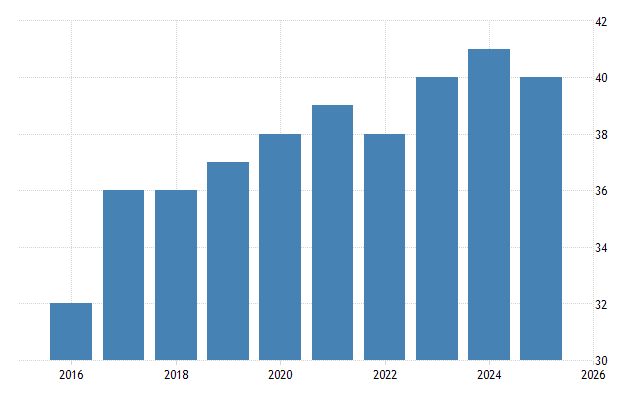Consider this: Tanzania ranked 94th out of 180 countries in the 2020 Corruption Perceptions Index by Transparency International. Such a position undoubtedly raises questions about the underlying causes and the impact on the socio-economic environment. Does it signify a pervasive issue or hopeful strides toward improvement?
The roots of corruption in Tanzania can be traced back to both colonial legacies and modern-day administrative practices. With nearly 38% of Tanzanians reporting that they have paid a bribe at some point, the urgency for robust anti-corruption reforms is palpable. Engaged efforts from both the government and civil society are crucial to mitigate this enduring issue.

What’s the corruption level in Tanzania?
Tanzania’s corruption level is a serious concern. According to Transparency International’s 2020 Corruption Perceptions Index, Tanzania ranked 94th out of 180 countries. This ranking highlights the country’s struggles with graft and unethical practices. Many government officials and businesses are often involved in corrupt activities. It affects everything from local economies to international relations.
Ordinary citizens also feel the weight of corruption. Around 38% of Tanzanians have admitted to paying bribes at some point. This number shows how deeply ingrained corruption is in everyday life. It affects access to essential services like healthcare and education. Such conditions create a vicious cycle of poverty and inequality.
The Tanzanian government has implemented some measures to fight corruption. Several anti-corruption bodies have been established over the years. For instance, the Prevention and Combating of Corruption Bureau (PCCB) is a significant step in this fight. However, the success of these measures has been mixed. While some progress has been made, major challenges remain.
Efforts to reduce corruption need to be strengthened. Public awareness campaigns are crucial. Citizens should be educated about their rights and encouraged to report corrupt practices. Stronger legal frameworks and transparent governance can help too. Only with collective effort can Tanzania hope to improve its situation.
Overview of Corruption Perception and Rankings
Understanding corruption in Tanzania requires examining how it is perceived globally. Transparency International’s Corruption Perceptions Index (CPI) is a key source. In 2020, Tanzania scored 38 out of 100 on the CPI. This score places it 94th out of 180 countries. Higher scores reflect lower corruption levels, so Tanzania’s score indicates significant issues.
Corruption perception varies across different sectors. Government officials and law enforcement are often perceived as the most corrupt. Corruption affects public trust and credibility. When leaders are seen as corrupt, it impacts the whole nation’s image. This perception can deter foreign investment and aid.
Regional comparisons offer more insight. Within East Africa, Tanzania has a slightly better score than some neighbors, but not by much. Kenya and Uganda, for instance, have similar corruption challenges. Comparing these rankings helps understand regional trends and issues. Still, Tanzania’s position calls for urgent reforms.
Historical trends also matter. Over the years, Tanzania has seen slight improvements. Efforts by anti-corruption agencies have some impact. However, sustained progress requires long-term commitment. Only continuous efforts can shift perceptions positively.
Factors Contributing to Corruption in Tanzania
Several factors fuel corruption in Tanzania. One significant issue is the lack of transparency in government operations. When processes are not clear or open to the public, it becomes easier for corruption to take root. Bureaucratic red tape and complex procedures add to the problem. These hurdles can lead individuals to seek shortcuts through bribery.
Another contributing factor is low wages for public officials. With insufficient salaries, many officials look for extra income through corrupt means. This issue is common in many developing countries. In Tanzania, it is no different. An increase in wages could help reduce this incentive.
The legal and judicial systems also play a role. Sometimes, the laws are not strict enough or not enforced effectively. Corrupt individuals may escape punishment. This creates a culture of impunity. People continue corrupt practices without fear of consequences.
Social and cultural aspects cannot be overlooked. In some communities, giving gifts to officials is a long-standing tradition. While not always intended as bribes, these gifts can lead to favoritism. Changing such deeply rooted practices is a complex task. Successful anti-corruption efforts must address these cultural norms.
Key Anti-Corruption Measures and Their Effectiveness
Tanzania has implemented several anti-corruption measures over the years. A notable one is the establishment of the Prevention and Combating of Corruption Bureau (PCCB). This body is responsible for investigating and prosecuting corruption cases. It has had some success, but challenges remain. Limited resources and political interference often hinder its effectiveness.
The government has also introduced stricter laws and regulations. For example, the Anti-Money Laundering Act aims to track and curb illegal financial activities. Enhanced auditing and financial reporting requirements have been enforced. These measures aim to reduce loopholes in the system. However, enforcement is still a challenge.
Technology has been leveraged to fight corruption as well. Initiatives like e-government services reduce direct contact between officials and citizens. This minimizes opportunities for bribery and corruption. Digital platforms also ensure more transparent transactions. Yet, widespread implementation is still a work in progress.
Community engagement and public awareness campaigns are crucial. By educating citizens about their rights and the dangers of corruption, the government aims to foster a culture of accountability.
- Workshops and seminars
- Media campaigns
- School programs
These initiatives help in spreading the anti-corruption message.
Despite these efforts, some measures have limited effectiveness. Political will is essential for the success of anti-corruption initiatives. Without strong support from the top, reform efforts can falter. Thus, continuous political commitment is necessary for long-term success.
Challenges in Combating Corruption
Combating corruption in Tanzania faces numerous challenges. One major issue is the deep-rooted culture of corruption. Many people see it as a part of daily life. This acceptance makes it difficult to implement changes. Breaking this mindset is a significant hurdle.
Political influence hampers anti-corruption efforts. Corrupt officials may manipulate systems to avoid being caught. They have the power to interfere with investigations. This makes the work of anti-corruption bodies more complicated. Political protection for corrupt individuals weakens the entire process.
Limited resources and funding are another challenge. Anti-corruption agencies often lack the necessary tools. They need more staff, better technology, and increased budgets. Without these, they cannot effectively pursue all corruption cases. Resource constraints limit their capabilities.
Another issue is the slow judiciary process. Legal proceedings in corruption cases can drag on for years. This delay undermines public trust in the system. It also allows corrupt individuals to continue their practices. Speeding up legal processes is essential for better outcomes.
International factors can play a role too. Global businesses and foreign aid programs may inadvertently encourage corrupt practices. When funds are not monitored closely, they can be misused.
- Lack of oversight
- Weak international regulations
- Complex global transactions
These factors complicate national efforts to stop corruption.
Future Outlook on Corruption in Tanzania
The future outlook on corruption in Tanzania has both challenges and potential. On one hand, persistent efforts by the government and civil society offer hope. Organizations are increasingly focused on transparent governance. Increased public awareness also contributes positively. However, the journey is long and arduous.
Technological advancements will play a critical role. Digital platforms for government services can reduce human interaction. This can minimize opportunities for bribery and fraud. Additionally, using technology to monitor and report corruption can improve efficiency. It helps in immediate identification and action.
Education and youth engagement are vital. Young people can be powerful agents of change. Integrating anti-corruption education in schools can build a new generation resistant to corruption. A stronger emphasis on moral and civic education is necessary. Over time, this could shift societal norms more broadly.
International cooperation and support are also essential. Global organizations can offer critical resources and expertise. Shared experiences and best practices can help Tanzania develop effective strategies.
- Technical assistance
- Financial aid
- Training programs
These efforts enhance the country’s ability to tackle corruption.
Yet, continuous political commitment is indispensable. Leaders must exemplify integrity and transparency. Sustainable progress depends on this unwavering commitment. Corruption might never be fully eradicated, but consistent efforts can greatly reduce it. The outlook, while challenging, remains cautiously optimistic.




